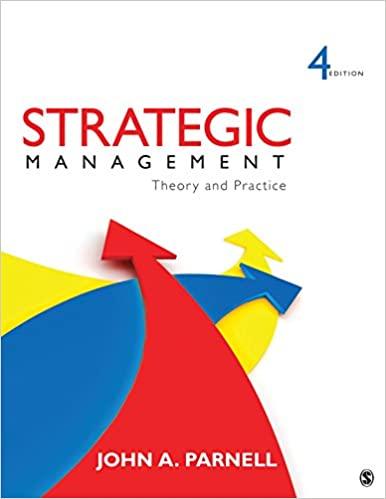Warren Eisenberg and Leonard Feinstein launched Bed n Bath in 1971 with one small linens store in
Question:
Warren Eisenberg and Leonard Feinstein launched Bed ’n Bath in 1971 with one small linens store in New York and another in New Jersey. The firm expanded into two other states—
California and Connecticut—by 1985, at which time its first successful superstore was launched, a format that became a prototype for all future outlets. The company changed its name to Bed Bath & Beyond (BBB) in 1987, went public in 1992, and quadrupled its total retail square footage between 1992 and 1996.
BBB is a nationwide chain of superstores selling domestics merchandise and home furnishings, including large selections of department-store quality, brand-name, and private-label products. The company’s domestics merchandise line includes items such as bed linens, bath accessories, and kitchen items. BBB’s home furnishings line includes items such as cookware, general housewares, cutlery, glassware, and general home furnishings. The firm benefited immensely from the demise of former rival Linens ’n Things in 2007.
BBB operates about 1,000 stores, each averaging about 42,000 square feet, with some stores much larger than others. BBB emphasizes service, selection, and everyday low prices.
In addition to BBB stores, the firm operates 70 Christmas Tree Shops, 55 Buy Buy Baby stores, and 45 Harmon discount health and beauty shops. The company continues to grow steadily, with a recent emphasis on international markets. BBB launched its first store in Canada in 2007, where it currently operates more than 20. It has also established a joint venture with Mexican retailer Home & More.
Management attributes its success in part to the freedom it gives its store managers with regard to inventories, new products, and layouts. The firm’s decentralized structure allows store managers to have more control than their counterparts at other retailers. The company ships merchandise directly to retail outlets, eliminating the expense of a central distribution center and reducing warehousing costs.
Case Challenges
1. Is the industry for BBB limited to other specialty retailers? To what extent are discount retailers such as Wal-Mart and Target prime competitors of BBB?
2. Is BBB likely to remain a successful retailer without a substantial emphasis on Internet business?
3. Is BBB pursuing a low-cost, a differentiation, or a combination business strategy?
Explain.
Step by Step Answer:






